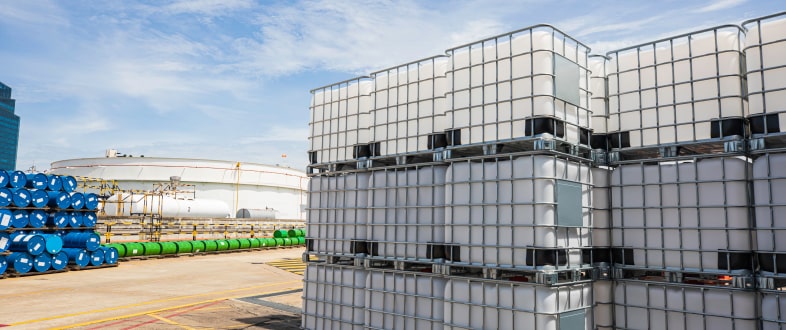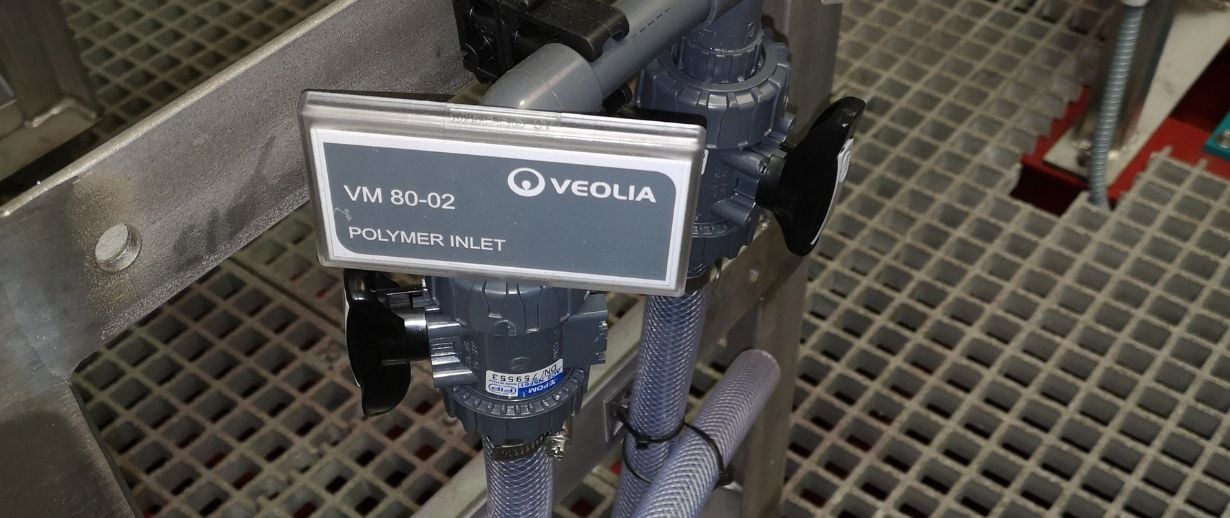Across many different industrial operations, site managers use polymer solutions to assist with the treatment of wastewater. A polymer solution flocculates suspended solids within the effluent discharge, to produce large flocs of solid material, which can then be removed by dissolved air flotation (DAF) or settlement. Polymer is a glue-like substance, in either liquid or powder form, with either a positive (cationic) or negative (anionic) chemical charge. Whilst all polymer solutions function in a similar fashion, they can come in many different forms. At Veolia Water Technologies UK, we believe that in many cases water-based solutions offer the most effective performance.
The Challenge of Polymer Dilution
One of the main benefits of both oil-based and water-based polymers is that they can be delivered to site in a concentrated form. In turn, this helps to make the solution easier to transport and store, but means it requires dilution before use. Dilution allows the polymer chains to open up, making the solution more effective. Unfortunately, effective dilution is much harder to achieve with oil-based polymer solutions, which do not mix as well in water as alternatives.

The Problem with Oil-Based Polymers
Achieving effective polymer dilution with an oil-based polymer can be a real challenge, especially in the wastewater treatment process. Oil-based polymers require more mixing because they are oil-based, which leads to blockages in the water addition/mixing process. As a result, blockages can occur, which can adversely affect the dilution unit and cause reduced performance and poor reliability. Over time, this can become a significant issue for site managers and often undermines the entire wastewater treatment process.
The Benefits of Water-Based Polymers

Unlike traditional polymer dispersions, where the active polymer is blended with mineral oils and surfactants, water-based polymer chains are already blended into the water matrix so they can be added directly to the mixing tank, saving the cost of operating a dilution unit.
This means that water-based polymer solutions dissolve more effectively within water, ensuring more reliable mixing, less blockages and lower retention time for maturation. Shifting to the solution is helping many site managers improve the overall efficacy of their wastewater treatment systems. What’s more, unlike oil-based solutions, water-based products contain ultra-low levels of volatile organic compounds (VOCs). VOCs are hazardous compounds, which can cause serious illness in humans. Therefore, removing them helps to improve working conditions for plant operators.
Furthermore, when compared to oil-based solutions, water-based polymers help to create lower levels of sludge. Additionally, the sludge that is produced is non-hazardous, which means that sites have greater disposal options than before. This can make a big difference in helping to reduce removal costs, further adding to the cost-effectiveness of water-based products. Finally, the manufacturing process involved in developing a water-based polymer is far less environmentally harmful than that of an oil-based alternative. As such, sites looking to make carbon footprint reductions should also consider making the switch.

Choosing to specify a water-based polymer solution has several benefits, particularly for sites dealing with wastewater treatment. By adopting the solution, site managers can look forward to many on-site benefits, including improved system efficacy and safer on-site conditions. By choosing a high-quality product, like those from our Hydrex 6903 range, those in the sector can mix directly into the treated effluent, removing the need to buy new dilution equipment.
We would always recommend partnering up with a true water technologies expert, such as Veolia Water Technologies, before making the switch, to ensure you get the most out of the process.
To find out more about water-based polymers and how they can benefit your site, contact one of our experts, here.